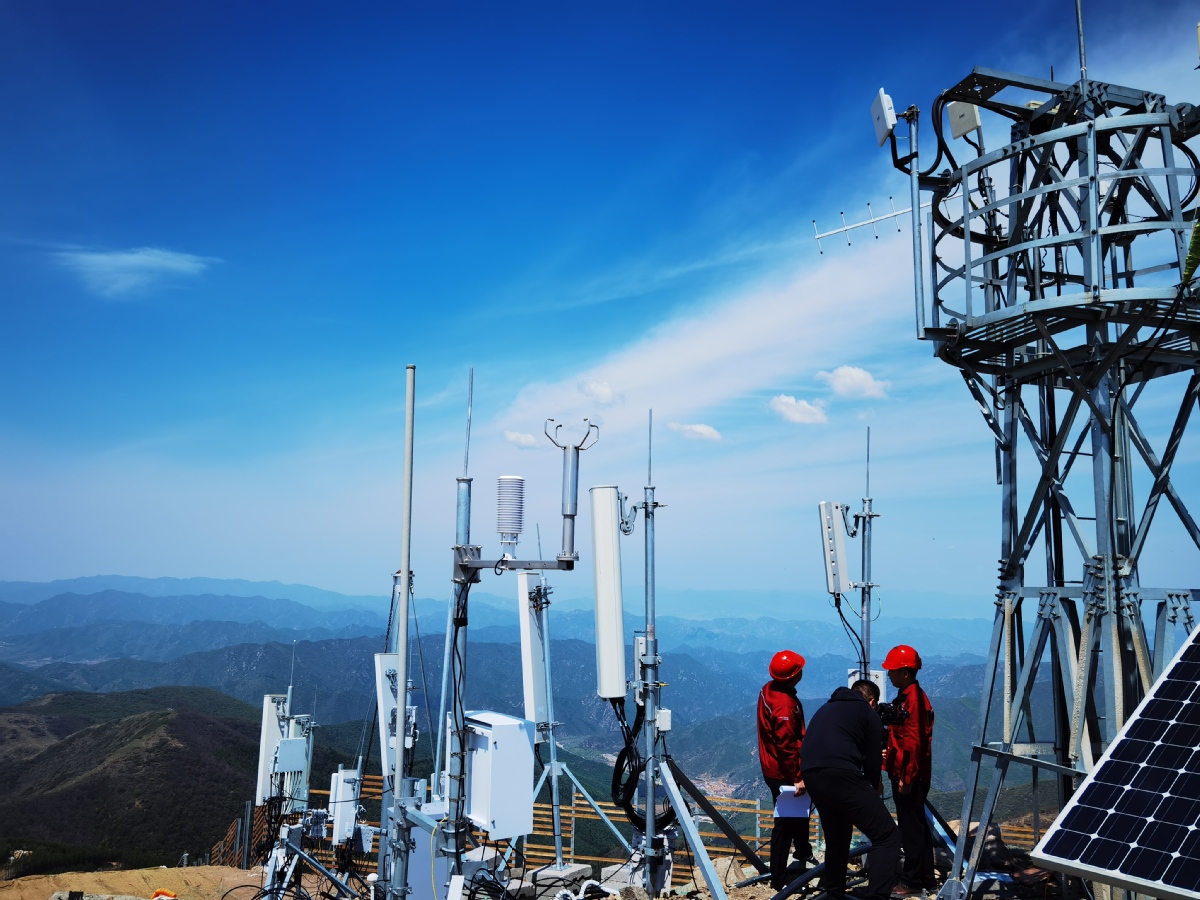Mountain high, valley low, 5G unstoppable at 2022 Olympic Games


Athletes from all over the world will get to experience the ease and convenience of China's high-speed communications network during the 2022 Beijing Winter Olympics as more than 100 5G base stations have already been built in 17 competition venues.
According to the Beijing branch of China Tower Corporation, the company responsible for the communications construction project, people will also be able to enjoy speedy service along the Beijing-Zhangjiakou high-speed railway and the Beijing-Chongli Expressway, the two main arteries to most venues, thanks to the 5G base stations installed along both routes.
"We started exploration work for the 5G base stations two years ago," said Cheng Jiwei, deputy general manager of the Beijing branch of China Tower Corp. "At present, we have completed all infrastructure construction for the Winter Olympics mobile communication network.
"The task wasn't easy. Most of the 5G base stations have been built from scratch, as physical conditions are complicated in competition areas, especially the venues for events like Alpine skiing, which are located in the remote mountains."
He said that in the past, there weren't even mobile phone signals there.
"So we sent a professional team which explored an area of more than 10,000 square kilometers, conducting tests and making plans," he said.
Thanks to this work, the team was finally able to devise a comprehensive solution to ensure the best possible mobile communications in and around the venues.
According to Cheng, the company has built 31 5G base stations in the Beijing and Yanqing competition zones and three sets of 5G indoor distribution systems at the National Alpine Ski Center, the National Sliding Center and the Yanqing Olympic Village.
Meanwhile, 49 5G base stations have been built along the Beijing-Zhangjiakou high-speed railway and 32 along the Beijing-Chongli Expressway, which will allow athletes and visitors to enjoy high-speed 5G internet during trips between venues.
Li Zhixin, technology head at the Beijing branch of China Tower Corp, said there were no existing examples anywhere of 5G signals being transmitted through tunnels, so the team was forced to come up with an innovative solution.
"Now, passengers will be able to watch livestreaming videos and all kinds of online shows via cellphone, even when they are on the fastest-moving trains on the Beijing-Zhangjiakou high-speed line," he said. "Our technology ensures a stable and strong 5G signal the whole way."
Zhang Lili, a white collar worker in Beijing who takes the subway to work every day, said she watches online courses and TV shows during her commute, which makes travel time more worthwhile.
"Just a few years ago, we couldn't even make calls on the subway because of signal issues. China's 5G development is so fast," she said.
According to the Beijing Communications Administration, the capital has installed 56,400 5G base stations, ranking top among Chinese cities as of the end of April.
The administration said Beijing's 5G industry will generate revenues of about 200 billion yuan ($31 billion) in the coming year, driving the information service industry as well as telemedicine, ultra high-definition video and unmanned delivery services. Eventually, these sectors will reach an industrial scale worth trillions of yuan.
Last year, China built the largest 5G network in the world, with a total of 718,000 5G base stations installed so far.
- Galactic Energy launches five satellites into orbit
- Xinjiang's development path aligned with Hong Kong, Macao initiatives
- Ningxia aims for 5.5% GDP growth in 2025
- Helicopter service to shorten travel time across Qiongzhou Strait
- 660,000 nursery slots set to open in China
- China greenlights 129,500 EIA approvals in 2024







































